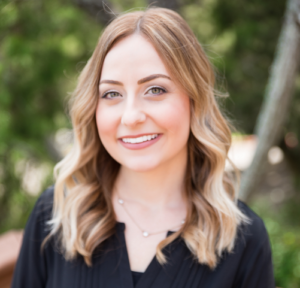
It’s likely you’ve seen the nation’s opioid epidemic in the news lately, as opioid use, misuse (or use disorder), and overdose has vastly increased in the past several years. Every day, more than 130 people in the United States die after overdosing on opioids. [1, 2, 3, 4, 5]
Opioids are a class of drugs that include illegal drugs like heroin as well as prescription drugs like fentanyl, oxycodone (OxyContin®), hydrocodone (Vicodin®), codeine, morphine, and many others. [5]
Although not everyone who is prescribed or has tried opioids develop an opioid use disorder, opioids are highly physically and psychologically addictive due to their powerful ability to reduce physical pain and induce feelings of euphoria. [5]
Opioid misuse and overdose is a severe national crisis that affects public health as well as social and economic welfare. The Centers for Disease Control and Prevention estimates that the total "economic burden" of prescription opioid misuse alone in the United States is $78.5 billion a year, including the costs of healthcare, lost productivity, addiction treatment, and criminal justice involvement. [4]
Unfortunately, the opioid crisis is only expected to worsen. By 2025, the annual number of opioid overdose deaths is projected to reach nearly 82,000, resulting in approximately 700,000 deaths from 2016 to 2025. [2]
 According to a recent publication in The Journal of American Medical Association Network, interventions focused on lowering the incidence of prescription opioid misuse were projected to result in only a 3.0% to 5.3% decrease in opioid overdose deaths from 2016 to 2025. [2]
According to a recent publication in The Journal of American Medical Association Network, interventions focused on lowering the incidence of prescription opioid misuse were projected to result in only a 3.0% to 5.3% decrease in opioid overdose deaths from 2016 to 2025. [2]
Given this projection, prevention of prescription opioid misuse with interventions such as prescription monitoring programs does not seem to be enough to curb the opioid crisis and prevent opioid-related deaths in the near future. [2]
Research suggests that a multi-pronged approach (such as improving access to treatment, expanding harm-reduction interventions like overdose-reversing drugs, and lowering exposure to illicit opioids), is needed to change the course of the epidemic dramatically. [2]
In response to the opioid crisis, the U.S. Department of Health and Human Services is focusing its efforts on five major priorities: [4]
- Improving access to treatment and recovery services
- Promoting the use of overdose-reversing drugs
- Strengthening the understanding of the epidemic through better public health surveillance
- Providing support for cutting-edge research on pain and addiction
- Advancing better practices for pain management
Sources:
1. Substance Abuse Center for Behavioral Health Statistics and Quality. (2017, Sept 7). Results from the 2016 National Survey on Drug Use and Health: Detailed Tables. SAMHSA. Retrieved from https://www.samhsa.gov/data/sites/default/files/NSDUH-DetTabs-2016/NSDUH-DetTabs-2016.htm. on 2019, Feb 19.
2. Chen Q, Larochelle MR, Weaver DT, et al. Prevention of Prescription Opioid Misuse and Projected Overdose Deaths in the United States. JAMA Netw Open. 2019;2(2):e187621. doi:10.1001/jamanetworkopen.2018.7621
3. Rudd, R.A., Seth, P., David, F., Scholl, L. (2016). Increases in Drug and Opioid-Involved Overdose Deaths - United States, 2010-2015. MMWR Morb Mortal Wkly Report; 65 (50-51) : 1445-1452. doi:10.15585/mmwr.mm655051e1.
4. National Institute on Drug Abuse. (2010, Feb 19). Opioid Overdose Crisis. Retrieved fromhttps://www.drugabuse.gov/drugs-abuse/opioids/opioid-overdose-crisis on 2019, Feb 19.
5. NIDA. Opioids. Retrieved from https://www.drugabuse.gov/drugs-abuse/opioids on 2019, Feb 19.
About the Author:
 Chelsea Fielder-Jenks is a Licensed Professional Counselor in private practice in Austin, Texas. Chelsea works with individuals, families, and groups primarily from a Cognitive Behavioral Therapy (CBT) and Dialectical Behavior Therapy (DBT) framework.
Chelsea Fielder-Jenks is a Licensed Professional Counselor in private practice in Austin, Texas. Chelsea works with individuals, families, and groups primarily from a Cognitive Behavioral Therapy (CBT) and Dialectical Behavior Therapy (DBT) framework.
She has extensive experience working with adolescents, families, and adults who struggle with eating, substance use, and various co-occurring mental health disorders. You can learn more about Chelsea and her private practice at ThriveCounselingAustin.com.
The opinions and views of our guest contributors are shared to provide a broad perspective of addictions. These are not necessarily the views of Addiction Hope, but an effort to offer a discussion of various issues by different concerned individuals.
We at Addiction Hope understand that addictions result from multiple physical, emotional, environmental and genetic factors. If you or a loved one are suffering from an addiction, please know that there is hope for you, and seek immediate professional help.
Published on February 28, 2019
Reviewed by Jacquelyn Ekern, MS, LPC on February 28, 2019
Published on AddictionHope.com
